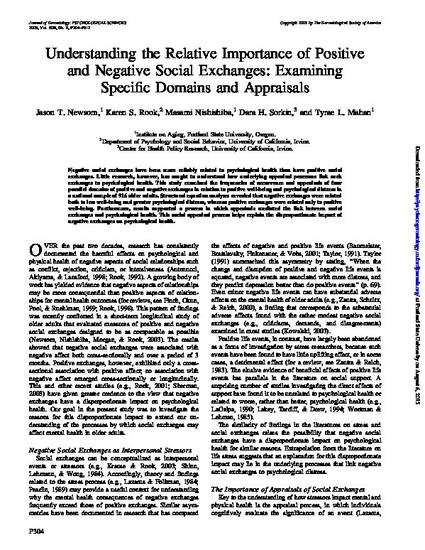
- Social exchange -- Case studies,
- Power (Social sciences),
- Retribution,
- Interpersonal communication
Negative social exchanges have been more reliably related to psychological health than have positive social exchanges. Little research, however, has sought to understand how underlying appraisal processes link such exchanges to psychological health. This study examined the frequencies of occurrence and appraisals of four parallel domains of positive and negative exchanges in relation to positive well-being and psychological distress in a national sample of 916 older adults. Structural equation analyses revealed that negative exchanges were related both to less well-being and greater psychological distress, whereas positive exchanges were related only to positive well-being. Furthermore, results supported a process in which appraisals mediated the link between social exchanges and psychological health. This social appraisal process helps explain the disproportionate impact of negative exchanges on psychological health.

Copyright 2005 by The Gerontological Society of America
This article reproduced here with permission. The definitive version can be found at the publisher's website.